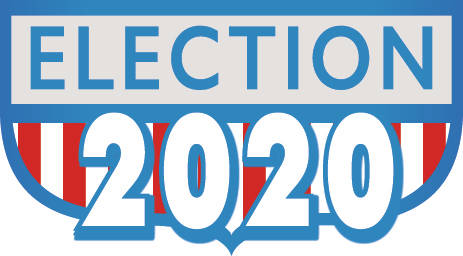
SIDNEY — Registered voters in the Sidney City Schools District are being asked to approve a 10-year, 7.3-mill emergency property tax levy when they go to the polls Nov. 3. The levy — if passed — will be used for the general operation of the district and will generate $3.5 million per year.
Funds from the proposed emergency levy would be used for the day-to-day operating expenses of the district including utilities, supplies, materials, repairs, staffing needs, building maintenance, technology, buses and capital improvements.
While voters approved a tax renewal in 2018, the district has had no new tax money since 2009. The 2009 levy generates $4 million per year. Two levies were allowed to expire after votes continued to vote them down. This included a permanent improvement levy. Today, the district has to transfer funds to the PI fund from the general fund for PI projects.
“Passing the tax renewal in 2018 was a significant decision,” said Tiffany Rank, communications director for the district. “That helped us put off asking the voters for more money, which we are doing now.”
In 2011, in an effort to keep the district operating in the black, a give year pay cut’tax freeze was implemented by the board of education.
“That helped the district from needing money,” said Rank. “The state funding formula shifted to our benefit. We were able to hold off asking for new money. It would help if we had the two levies that expired, things might be different.”
“If those levies had been approved, we wouldn’t need the new money right now,” said Superintendent Bob Humble. “With the cuts we’ve made, we’d be OK (if levies had passed) We wouldn’t bee in deficit spending.”
State funding, said Rank, has also been unpredictable.
“It was beneficial for a number of years,” she said. “Now we’re flat funded so we don’t get additional monies for new students and no new money from the state.”
“We have one student who is costing us $50,000,” said Humble. “That kid is costing us one teacher.”
Other changes at the state level has also affected the district. In the past, the state would pay 50% of the purchase cost for a new bus, Today, the entire cost for the bus is the school district’s responsibility.
“We are not allowed by law to ask voters to approve a sales tax,” said Rank. “The two ways we can get funding is through a property tax or income tax.”
An emergency levy dictates a fixed dollar amount to be raised from the levy. Because the Nov. 3 levy is an emergency levy, it would not generate new funds as property values increase or additional homes constructed in the district. As property values increase, the millage would decrease so the district would still receive $3.5 million per year.
Over the past two years, the Sidney budget has been cut by $3 million. The district also lost state funding because of the COVID-19 pandemic.
“This is the last time this year we can pass something that will begin collection in 2021,” said Humble. “Next year — if it’s not passed — we’ll be looking at $3,5 million in cuts from the budget. Our five-year forecast will look much uglier much sooner.”
Rank said Sidney has a lot to offer its residents. The school is part of the equation.
“Sidney has much to offer our families,” said Rank. “We have jobs. We have a vibrant downtown. We have lifestyle activities. There lots to offer here.
“Ultimately, we have good schools too,,” he said. “These are all good tenants of a good community. People want to come to Sidney.”
Humble said the community support has been there as the district has constructed new athletic facilities without using any taxpayer money.
“We have the lowest combined effective millage among 20 local school districts,” said Humble. “Troy, Piqua, Tipp City and Greenville all have higher millage.”
“Even if the levy passes, we’ll only move past one school district,” said rank. “We’ll move from No. 20 to No. 19.”
Some of the districts, they said, have both a property tax and income tax on their tax rolls. Sidney only has a property tax.
If approved in 2020, the effective date of the levy would be Jan. 1, 2020, with collections starting in 2021.
A person with a home with a property value of $109,500 has an assessed value of $38,325, which is the amount used to establish what would be paid if the levy is approved. Every mill is $1 per $1,000 assessed value. So the property owner would pay $279.78 per year in additional taxes. Breaking the tax down further, it would be $139.89 per half, $23.32 per month or 78 cents per day.
The district has attempted to pass an income tax levy in 2007. The 1.5% income tax levy was voted down 66.42%. The board attempted again in August and November of 2013 for a 1% income tax; August 2013 attempt was voted down 51.69% and November 2013 attempt was voted down 53.61%.
This is the third time the district has placed the 7.3-mill levy on the ballot. The first time was in March 2020, when the election was delayed because of the COVID-19 pandemic. The final tally for the Sidney City Schools tax levy was 2,687 against the levy and 2,121 for the levy.
During the August special elections, voters defeated the levy with 1,612 people voting for the levy and 1,829 voting against the levy.
To view frequently asked questions about the levy, visit, https://www.sidneyschoolslevy.org/


